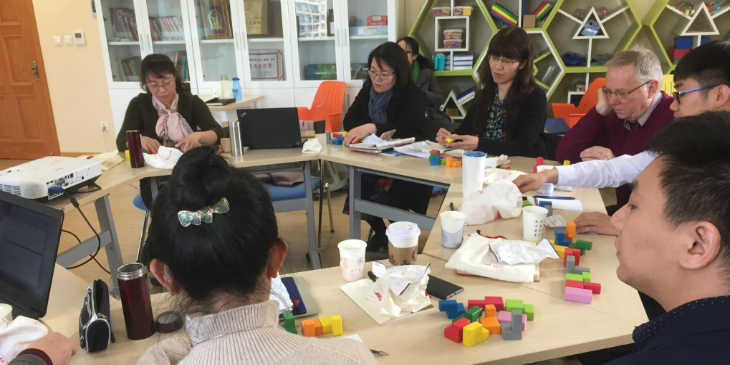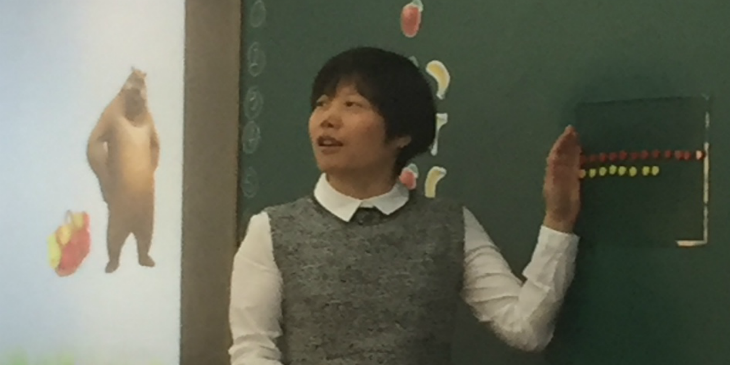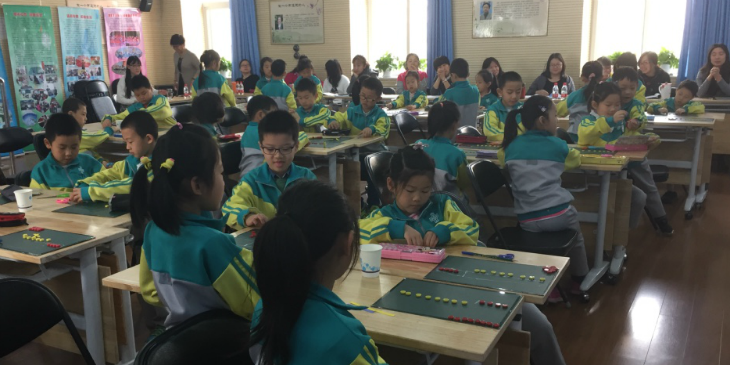
As this was a first school, both teachers taught several subjects, not only maths. However, their maths-focused initial training, coupled with their ongoing coaching from colleagues in the Beijing Institute of Education, meant that they really knew their stuff, were very well prepared and knew where they wanted the lesson to go. Because the subject matter was well known by them, and in their preparation they had predicted the responses of the children, the lesson felt as though it was child led. The teachers adhered very closely to the order of the lessons in the text book, although they chose different examples and embroidered the story to make it their own. None of the children in the lessons we saw used a text book during the lesson.
I was surprised at how small the process steps were. A whole lesson was devoted to a process which I think would probably have been almost incidental in UK lessons. The teacher used multiple ways to illustrate and describe the mathematics, repeating each several times; for example, illustrating difference not only by using one to one correspondence with discrete objects, but also using a continuous quantity such as length.

Each lesson began with a story, making the purpose of the lesson explicit. The children recorded either on pieces of paper or magnetic boards so there was no formal or permanent recording - for example in exercise books - in either of the lessons. The emphasis was on the experiences the children were having and on the language.
The children’s manual dexterity was impressive, illustrated both in manipulation of objects and in their writing. We wondered if this was because of the practice both in detailed paper cutting and in accurate recording of Chinese characters, both of which the children begin when very small.
The use of magnetic chalk boards seemed to be so much more efficient than interactive whiteboards and allowed for a closer match to the children’s experiences. Although there were electronic screens to display photographs prompting the original problem, all subsequent work was recorded on the chalkboard. I’ve written elsewhere how the functionality to reconstruct the story of the lesson seems to me to be very important – and this is not available using successive PowerPoint slides.
The children were pretty well all totally engaged - and they seemed really to enjoy their mathematics.

Implications for Cambridge Maths
The focus for these wonderful visits to other classrooms is to ensure that we write a framework which is realistic and based on the best practice, evidence and research we can find. The lessons in the Chinese classrooms emphasise even more strongly the difference between a curriculum which indicates general progression, and the detailed taking apart of conceptual progress into tiny steps which translate into classroom practice. What a fascinating problem to have!